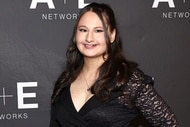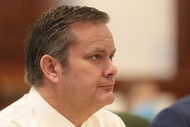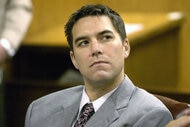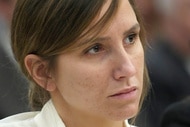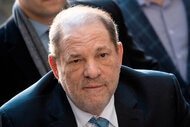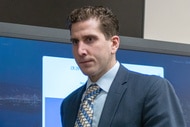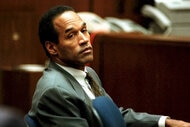Create a free profile to get unlimited access to exclusive videos, breaking news, sweepstakes, and more!
Elizabeth Holmes Chose Fraud Over Failing In Business, Prosecutors Say During Closing Arguments In High-Profile Case
The federal fraud trial of former Theranos founder and CEO Elizabeth Holmes is nearing its conclusion as her defense is set to wrap up its closing arguments before a jury begins deliberations.
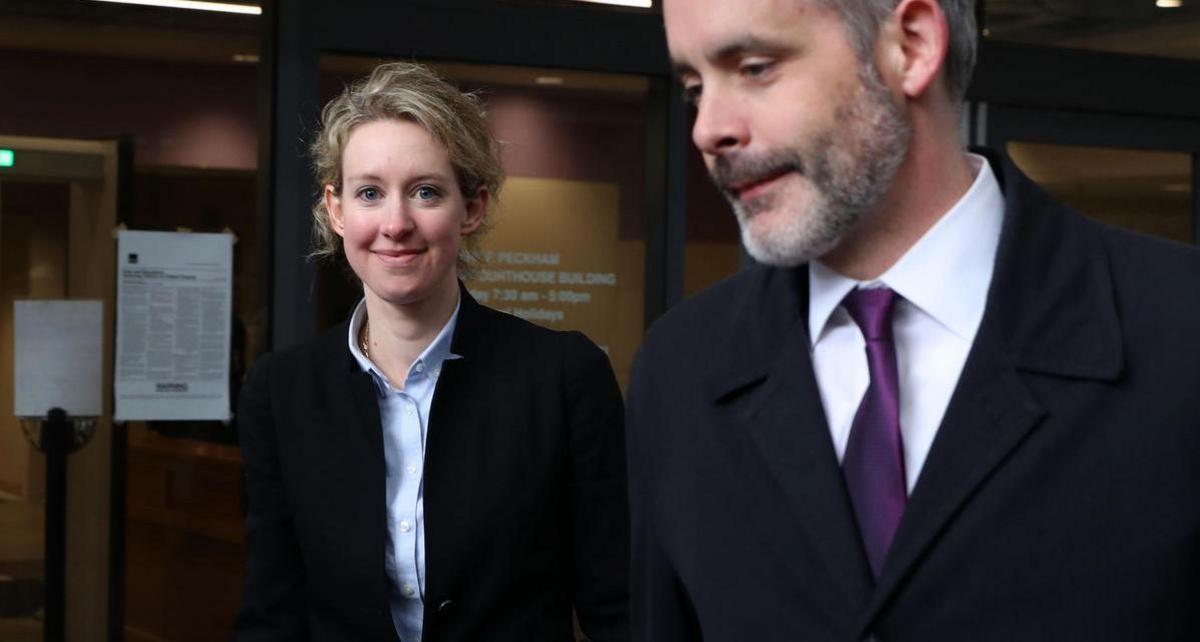
Theranos founder Elizabeth Holmes chose to defraud her investors rather than admit her blood-testing company was failing, choosing fame and fortune over honesty, according to prosecutor’s closing arguments in the high-profile case.
“She chose fraud over business failure,” Assistant U.S. Attorney Jeff Schenk said, according to The Associated Press. “She chose to be dishonest. This choice was not only callous; it was criminal.”
Prosecutors painted Holmes—who is facing 11 fraud and conspiracy charges—as a cunning Silicon Valley executive who purposely misled investors and patients about the capabilities of Theranos’ blood-testing devices.
While Holmes had once claimed the technology would revolutionize the health care industry by being able to run hundreds of blood tests using only a few drops of blood from a finger prick, prosecutors argued the technology was inaccurate and could only be used to conduct a handful of tests.
“The story of Theranos is in some ways a tragedy,” Schenk said, according to The Washington Post. “What happened to the investors and the patients should not have happened, they should have been treated with honesty.”
Holmes’ defense attorney, however, argued that Holmes had been dedicated to the business and referred to the prosecution’s case as a misleading and incomplete view of the company’s activities.
“Elizabeth Holmes was building a business and not a criminal enterprise,” Kevin Downey said, according to the AP.
He argued that prosecutors had failed to present information about the company’s successful projects, which were a key focus of the defense.
During the more than 15-week trial, prosecutors called 29 witnesses to lay out their case, including six investors who told jurors they were given the false impression that Theranos devices were being used on U.S. military members in the field and that the device could successfully provide a broad range of tests that weren’t actually possible, Reuters reports.
“I thought all along that we were doing it on Theranos gear,” former U.S. Defense Secretary Jim Mattis, who also served on the company’s board, testified in September, according to The Post. “And I’m a member of the board and I thought that.”
Prosecutors also called to the stand patients who had gotten inaccurate results from the testing process, including one who received a false-positive for prostate cancer and a woman who was told she miscarried a pregnancy even though she hadn’t, The Daily Beast reports.
As the company struggled, Holmes continued to raise money, ultimately securing more than $900 million from investors including Henry Kissinger and Rupert Murdoch, and forming partnerships with big-name retailers like Walgreens and Safeway.
To support his case, Schenk used Holmes’ own words against her, playing audio from a conversation she had with investors in December of 2013 and a Fortune magazine reporter in May of 2014 where she makes exaggerated claims about the company’s capabilities.
“You should find her guilty, but you shouldn’t find her guilty because of my words,” he said. “You should find her guilty because of her words.”
Holmes’ defense relied primarily on the 37-year-old’s own testimony. She took the stand for seven days to testify in her own defense, telling jurors that she had never meant to mislead anyone and that she believed the company’s technology did work.
“She believed that she had invented a very valid form of technology that she was submitting to the Food and Drug Administration to take to the market,” Downey said, according to the news outlet. “She had no fear of showing that technology to people outside the company.”
Downey urged jurors to look at the bigger picture of what Holmes had been trying to accomplish with the company and said prosecutors had presented only a portion of the story. When you looked at the series of events in its entirety “at the end of the day when all the evidence flows together” it “isn’t that bad,” he said.
A focus of Holmes’ testimony was the long-term romantic relationship she had with Sunny Balwani, who served as the company’s chief operating officer. She alleged that Balwani controlled nearly every aspect of her life, forced her to have sex and subjected her to mental and emotional abuse that impacted her judgement during their relationship.
Balwani—who faces his own trial next year—has adamantly denied those claims.
Prosecutors have argued that Holmes’ claims of abuse are irrelevant to the charges lodged against her.
“If you return a guilty verdict, you are not saying you don’t believe her abuse allegations,” Schenk said.
Downey’s closing arguments are expected to continue Friday morning.
If convicted, Holmes—who arrived in court with her partner William “Billy Evans” and her parents—could face up to 20 years in prison.

